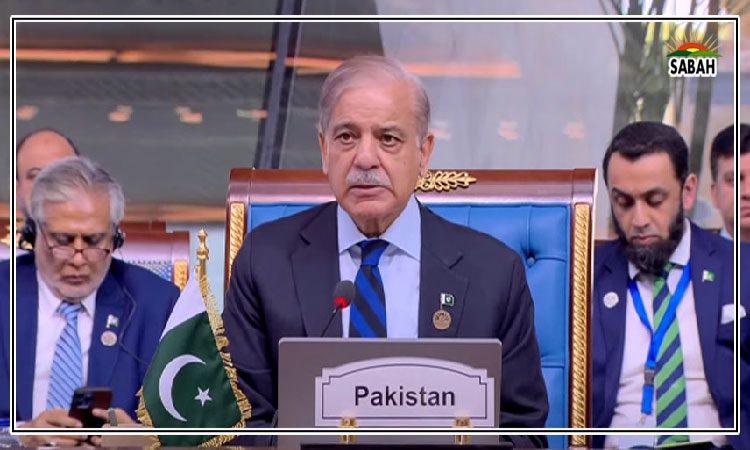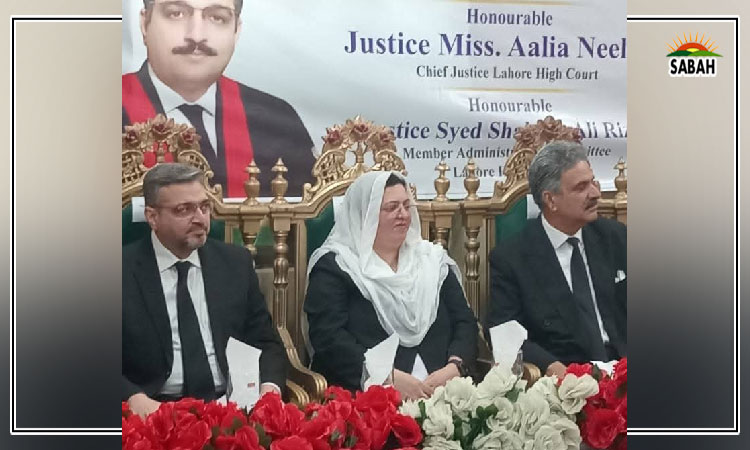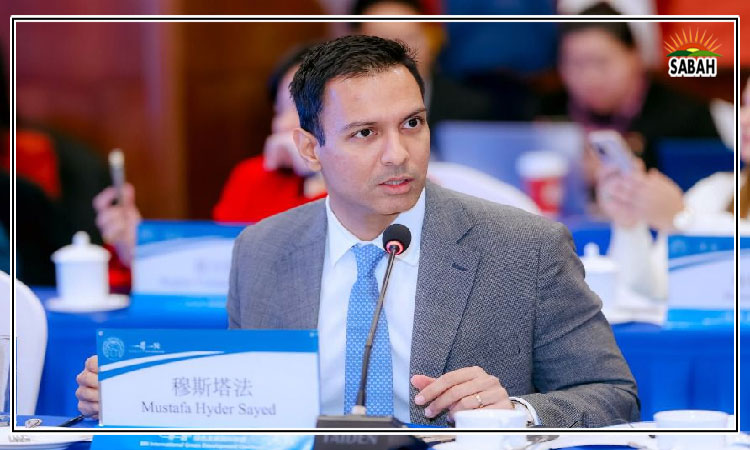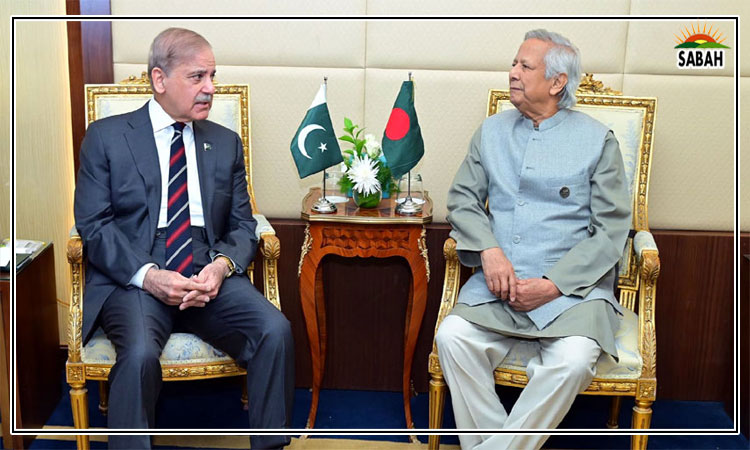Dignity of judges & the majesty of courts must be upheld at every level: CJP Justice Yahya Afridi
SADIQ ABAD, Dec 19 (SABAH): As part of his judicial reforms to improve service delivery and promote equitable access to justice, Justice Yahya Afridi, Chief Justice of Pakistan and Chairman of the Law and Justice Commission of Pakistan has initiated an extraordinary initiative to visit the most remote districts in each province personally. As part of this initiative, the Chief Justice visited the Sadiq Abad tehsil of District Rahim Yar Khan, the remotest district in Punjab Province on Thursday.
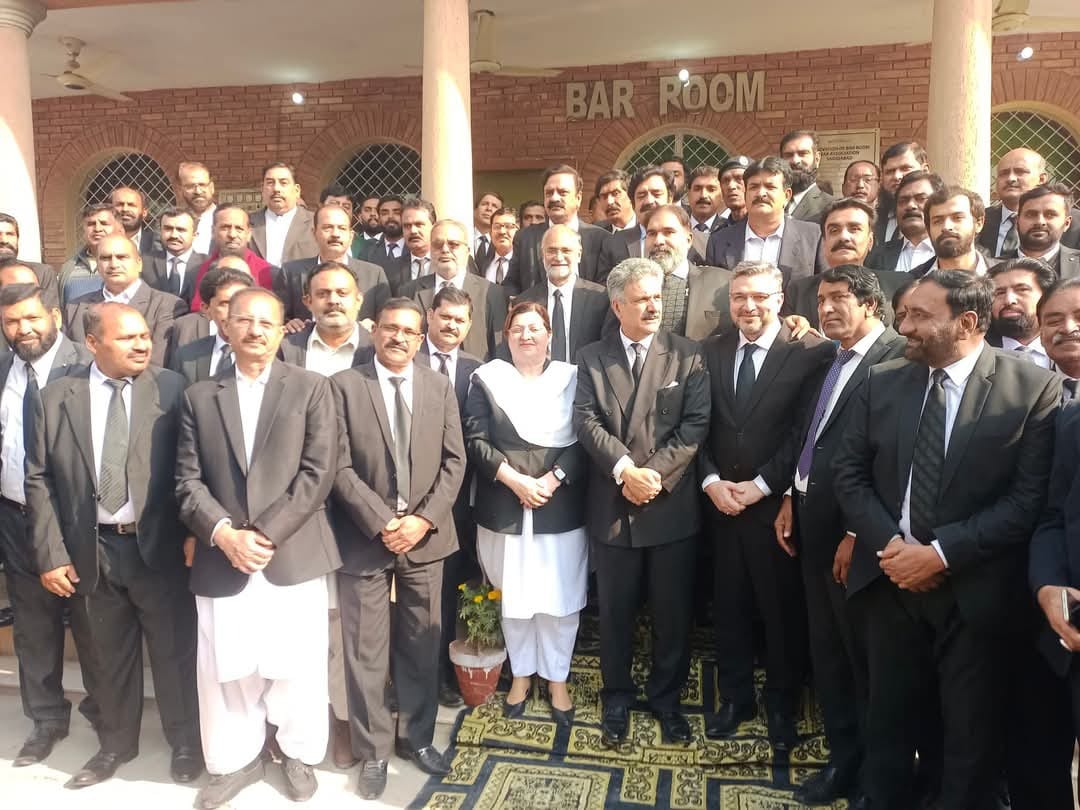
CJP Justice Yahya Afridi was accompanied by Justice Miss Aalia Neelum, Chief Justice, Lahore High Court, Justice Syed Shahbaz Ali Rizvi, Judge, Lahore High Court, and the Registrars of the Supreme Court and Lahore High Court.

During his visit, the Chief Justice engaged in extensive interactive sessions with District and Sessions Judges, as well as representatives of bar associations from Rahim Yar Khan and adjoining districts, including, Rajanpur, Dera Ghazi Khan, and Lodhran, who attended in person. Judges from Attock, Mianwali, Khushab, Jhang, Bahawalpur, Bahawalnagar, Multan, and Bhakkar districts, joined online. He emphasized that the apex judiciary’s focus extends to remote and underprivileged areas where judicial officers are diligently dispensing justice to litigants. He encouraged the judges to identify systemic bottlenecks encountered daily, that hinder judicial efficiency, assuring them that these challenges would be addressed through the LJCP to enhance justice delivery at the grassroots level.
The Chief Justice assured judicial officers serving in remote districts that comprehensive measures would be taken to ensure a supportive work environment, with a focus on enhancing their safety, dignity, and access to essential resources. He urged the High Courts to prioritize the placement of skilled officers in remote districts, ensuring consistent tenures and robust institutional support. He proposed several key initiatives, including prioritizing foreign training programs and professional development opportunities through the LJCP. These initiatives aim to provide judicial officers with international exposure, enabling them to stay abreast of global developments in the field of law and improve their capacity to serve effectively.
The Chief Justice directed judicial officers to focus on the litigants who come to courts seeking redress for their grievances. He underscored the importance of treating litigants with patience, respect, and dignity while adjudicating their cases expeditiously under the law. Applications for the transfer of cases between courts, he advised, must be handled transparently and efficiently, ensuring cases are reassigned without unnecessary delays or personal biases.
In his interaction with bar representatives, the Chief Justice reiterated the essential role of the bar in the justice sector, noting that effective cooperation between the bench and bar is vital for achieving the goals of justice delivery. He emphasized that the dignity of judges and the majesty of courts must be upheld at every level, whether it involves a civil judge in remote areas like Bonni or a Supreme Court judge in the federal capital. The grievances of bar members, he assured, would be addressed promptly to maintain harmony and collaboration within the justice system.
Highlighting his vision for equitable justice, the Chief Justice identified key focus areas for immediate attention. These include improving judicial accessibility in remote districts such as Jeevani in Balochistan, Tank in Khyber Pakhtunkhwa, Ghotki in Sindh, and Sadiq Abad in Punjab. He stressed the need to prioritize cases involving women, children, and persons with disabilities, as well as to advance justice delivery through automation, alternative dispute resolution mechanisms, better case management, and human resource development. Acknowledging the scale of these tasks, he called for patience, planning, and the collective support of Supreme Court judges, Chief Justices and judges of High Courts, district judiciary members, and the bar.
Earlier, the LJCP informed the legal community about the Access to Justice Development Fund (AJDF), which aims to empower legal practitioners in underserved regions. This fund provides financial assistance to support their efforts in advancing justice and ensuring equitable access to legal resources.
The Chief Justice reaffirmed his commitment to strengthening the justice delivery system and expressed confidence that the bar and judiciary would work together to uphold the sanctity and majesty of courts, ensuring justice for all, especially in the most remote and underprivileged areas.







